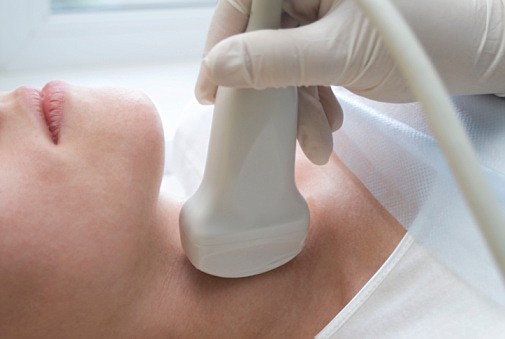Thyroid health: Symptoms and treatments
June 6, 2012 at 8:37 a.m.
The thyroid is an important gland that regulates many bodily functions. It is found in the front area of your neck and is often described as butterfly-shaped. This gland produces hormones and is responsible for some uncomfortable ways you feel physically and mentally, especially if you are experiencing thyroid disorders. Symptoms of thyroid problems vary and can seem to be opposites.
What problems might be related to the thyroid gland?
Typical thyroid disorders occur when too little or too much hormone is produced by this gland. If your thyroid is too slow, you may discover you are gaining weight. If it is working too fast, you may unexpectedly lose weight. The first condition is called hypothyroidism; the second is called hyperthyroidism. A gland that is over-active may cause you to feel jittery, sweaty or anxious. If it is under-active, you may experience hair loss, fatigue or feel chilly.
Problems originating with thyroid function are very common, especially with age. Serious problems may require drastic treatment. The bottom line here is that if you are not feeling your best, have your doctor check your thyroid hormone levels. The test is a simple blood test for thyroid stimulating hormone (TSH) levels. You will get results quickly and your doctor will be able to suggest a remedy for any thyroid disorders.
Your thyroid gland and its hormones work to help your body utilize energy. It affects your metabolism, which is why you may feel either hot or cold, depending on whether the hormone levels produced by this gland are too high or too low. Changes in weight are one of the first and most common symptoms of thyroid problems.
What are other symptoms of thyroid disorders?
Here is a short list of symptoms that may be related to problems with your thyroid gland:
- Enlargement or swelling in the front of the neck; this is called a goiter.
- Mood and energy changes can cause you to feel sluggish, tired, or depressed. Over-activity of the gland may cause sleeplessness or a restless feeling.
- Heart rate and blood pressure changes.
- Loss of hair can be a result of thyroid disorders. When you again have balanced hormone production, the hair may return.
- Body temperature variations. The thyroid regulates body temperature. If it is not working properly, you may feel either excessively hot or cold.
- Various problems with dry skin, brittle nails, menstrual irregularity or abnormality, constipation, numbness in hands, muscle weakness, vision problems, diarrhea.
Do not confuse thyroid disorders with menstrual cycle disruption due to menopause. Get the blood test to know for sure if you are dealing with symptoms of thyroid disorder or normal menopausal changes.
What serious problems can be related to thyroid disorders?
Testing of blood is recommended to be done at five year intervals after age 35. Neck examination can be done any time. Your doctor may advise more frequent testing if you are over age 60 or if there is any family history of thyroid problems. Some very serious physical problems can be related to malfunction of the thyroid gland, including:
- Graves' Disease -- often recognized by an appearance of bulging eyes
- Hashimoto's Disease -- an autoimmune disorder
- Pituitary gland problems -- this gland tells the thyroid gland what to do
- Nodules or lumps on the thyroid gland
- Elevated cholesterol levels could lead to fainting, stroke or heart attack
- Cancer
As stated previously, detection and treatment of thyroid disorders is simple and fast. Fixing this problem may require taking a daily pill, radiation therapy or surgery. Consult with your physician without fear if you notice any of these symptoms of thyroid problems. Treatment is important for continuing your high quality of living.
Content Provided by Spot55.com





